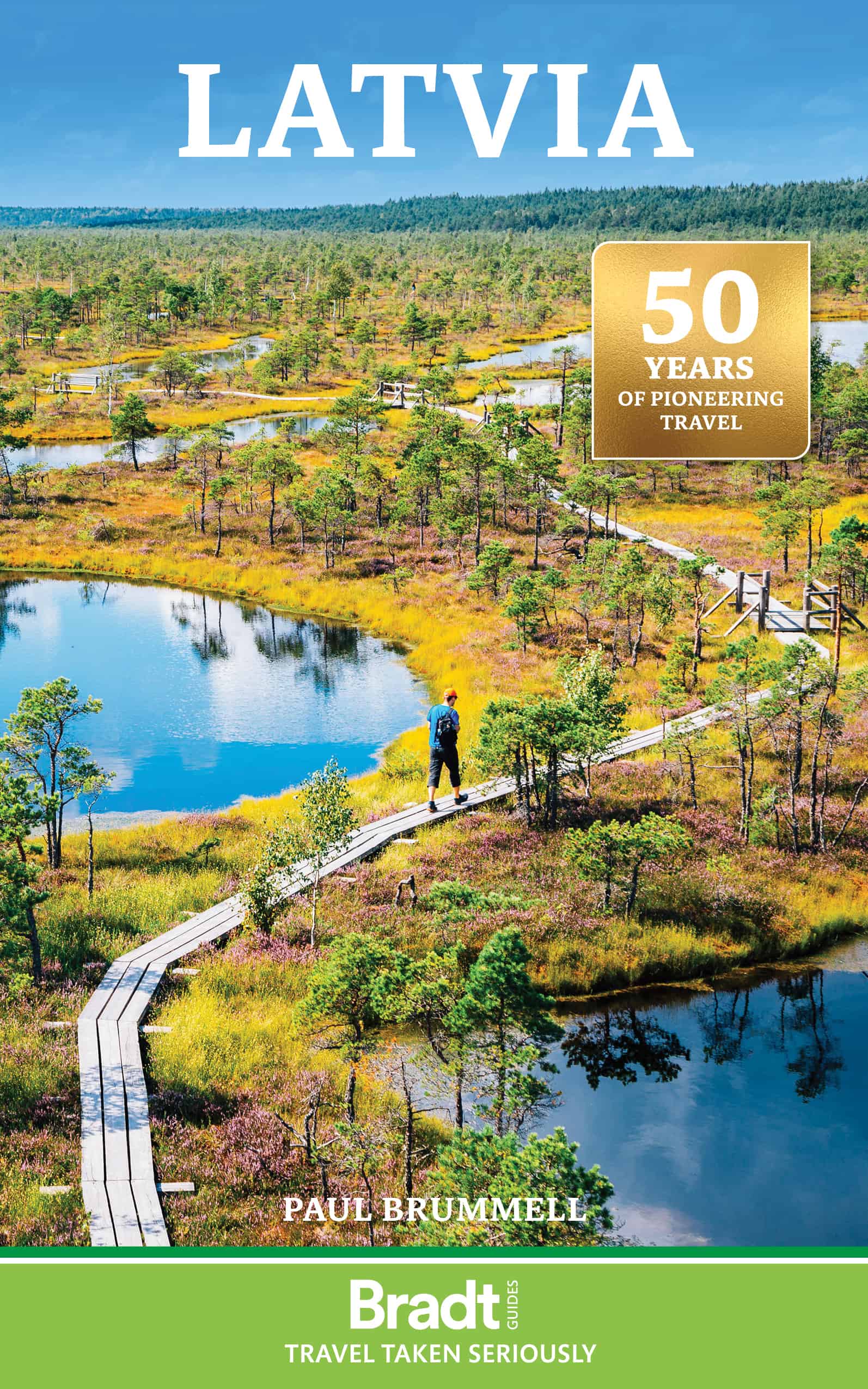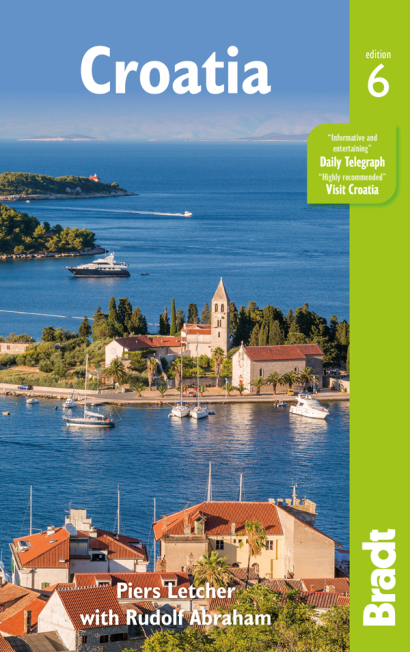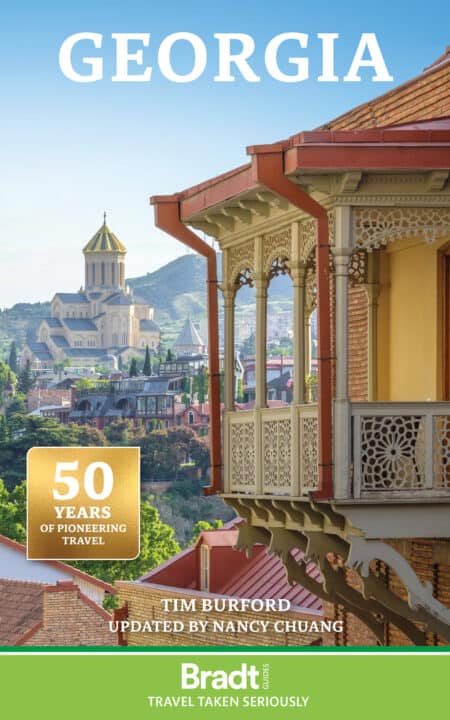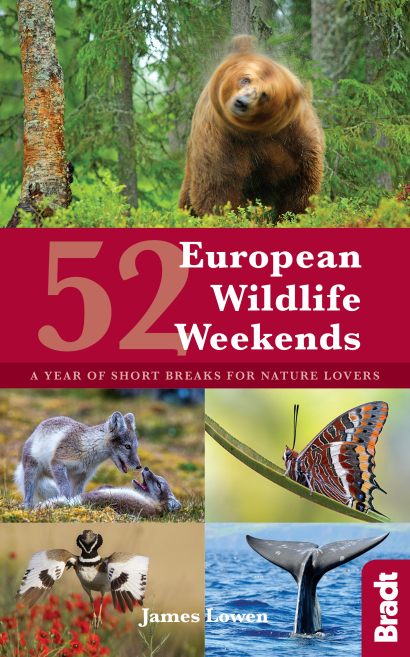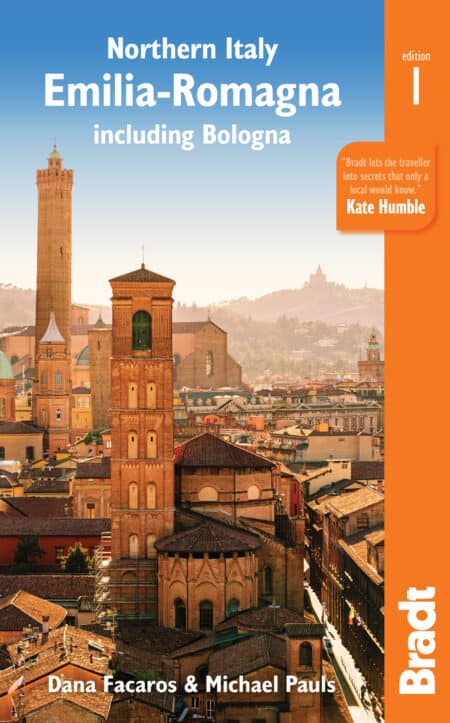Latvia
£18.99
Latvia travel guide. Holiday advice and tips from Riga hotels, restaurants and Art Nouveau buildings to rural tourism options including hiking, cycling and canoeing. Features Baltic Sea beaches, Jurmala, medieval castles, Rundale Palace, Song and Dance Festival, Daugavpils Mark Rothko Arts Centre, Gauja, Cesis, Kuldiga, Pokaini and Latgale’s lakes.
1126 in stock
ISBN: 9781804690406
Published: 07th Jun 2024
Size: 135 X 216 mm
Edition: 6
Number of pages: 296
About this book
The new, sixth and thoroughly updated edition of Bradt’s Latvia remains the only standalone guide to this fascinating and ever-changing Baltic nation. This is a small but enchantingly varied country that will appeal to culture vultures, history buffs, outdoors enthusiasts and foodies alike.
Latvia is best known internationally through its capital city Riga, whose centre is a UNESCO World Heritage site combining a medieval core providing testimony of its importance as a port of the Hanseatic League and an outer area containing the most extensive assemblage of Art Nouveau buildings in Europe.
Latvia is much larger than Denmark or Switzerland yet, with a population of under two million, is one of the most verdant countries in Europe. A low-lying landscape of forests, lakes and marshes offers an increasing range of rural tourism options facilitated by recent EU infrastructural investments. Why not go hiking or canoeing in Gauja National Park, go cycling or explore Latgale’s lakes? In summer, Latvia’s Baltic Sea coast comes into its own: almost 500km long, much comprising pristine sandy beaches backed by dunes. Seaside options range from cosmopolitan Jurmala, once a favoured holiday destination of the Soviet elite, to out of the way idyllic spots the visitor will have to themselves.
Latvia’s complex history results in tourist attractions ranging from medieval castles to the Baroque splendour of Rundale Palace, and from Daugavpils’s Mark Rothko arts centre to a once-secret Soviet nuclear bunker. Latvian culture and identity reaches peak expression in the five-yearly Song and Dance Festival, involving forty thousand performers. If you can’t wait for that, why not uncover Latvia’s pagan roots, including the mystical stones of the Pokaini Forest, or relax in a combination of traditional saunas and modern spas. For something completely different, you could even visit Karosta former military prison, where the intrepid can book a night in a cell, sleeping on an iron bunk.
Balancing coverage of the country’s cultural attractions with guidance on where and how to enjoy its natural environment, Bradt’s Latvia is the perfect guidebook to inform and inspire your visit.
About the Author
Paul Brummell, a career diplomat, is British Ambassador to Latvia, where he spends his free time exploring this fascinating country with his wife Adriana and son George. He loves both the pristine forests, marshes and beaches of Latvia and the way its buildings and monuments chronicle the complex history of the country. He is also fast becoming an expert on cottage cheese-related desserts, which are a much-loved element of Latvian cuisine. He previously served as British Ambassador to Turkmenistan and to Kazakhstan (and non-resident Ambassador to Kyrgyzstan), High Commissioner to the countries of the eastern Caribbean, and Ambassador to Romania. In 2016 he was awarded the CMG for services to British foreign policy. Brummell is also an accomplished travel writer. He is the author of Bradt guides to Turkmenistan and Kazakhstan, and co-author of the guide to Transylvania. He has also written Diplomatic Gifts: a history in fifty presents.
Additional Information
Table of ContentsChapter 1
Background Information
Chapter 2
Practical Information
PART 2
THE GUIDE
Chapter 3
Riga
Chapter 4
Around Riga
Chapter 5
Vidzeme
Chapter 6
Latgale
Chapter 7
Selija and Zemgale
Chapter 8
Kurzeme
Appendices
Language
Glossary/
Other
Further info
Index
